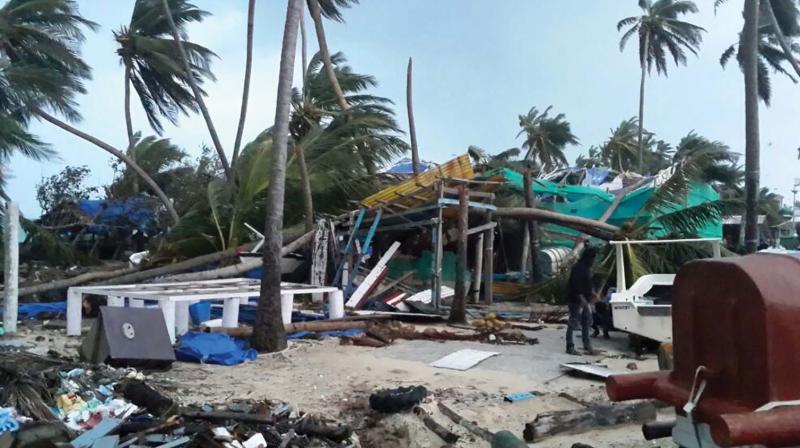Improve communication, say experts at Cyclone Ockhi meet

THIRUVANANTHAPURAM: The scientists of various disciplines who assembled at Press club elaborated on how loose ends in warning system, disaster management methods and vessels can be plugged to minimise casualty during catastrophes in future. The researchers were speaking at a seminar convened by fishermen under the aegis of Swathanthra Matsyathozhilali Federation and Nation Fish Workers Forum. K.R. Muraleedharan, a scientist from National Institute of Oceanography was incidentally in seas during cyclone for a research. He shared how the research team escaped Ockhi and need to improve communication facilities for fishermen.
"We noticed waves as high as 8.5 metres and they lashed back to back in high frequency. The wind was blowing in a different direction to the waves. The left side of the cyclone has a tendency to pull the vessels inside. So we managed to navigate through the right side of the storm. The fishermen on the small vessels had no scope of escape as they were not informed," he said. The master of his vessel managed to steer the vessel and later dock at Vizhinjam by November 30 due to advanced warning and observations they made.
"We were warned of depression near Sri Lanka few days before but expected the resulting cyclone to move to Bay of Bengal. But a day before the cyclone, we sensed that it might move to Western Coast and hit Kerala and our fishermen couldn't be informed by authorities," he added. Dr K.G. Thara, former head of disaster management authority, said that central funds for establishing satellite-based communication systems were being underutilised. "Such facilities are needed at taluk levels. A community-based task force also has to be established," she said.
Sheela Nair of National Earth Sciences Centre stressed the importance of having warning board in harbours with red and green colour lights that fishermen can refer to before venturing to seas. "We had dropped buoys that record and relays wave height, wind speed etc in deep seas. However, the fishermen cut their cables claiming they were a nuisance. Our buoy dropped towards Thoothoor side was damaged two days prior to the cyclone. It is important to sensitise people on the importance of such devices," she said.
Dr Leela Edwin of Central Institute of Fisheries Technology said that it was important to adhere to quality control and norms prescribed for vessels and equipment. "The vessels should not exceed the fish holding capacity to better manoeuvre the vessel out of the crisis. Quality of vessels has to be ensured by using marine quality steel, wood, resins, fibreglass to prevent the boats from getting capsized. We have encountered one-year-old boats with holes in them," she said.

